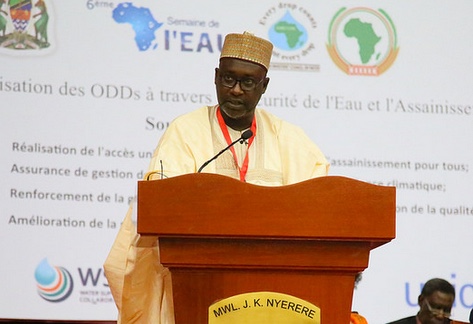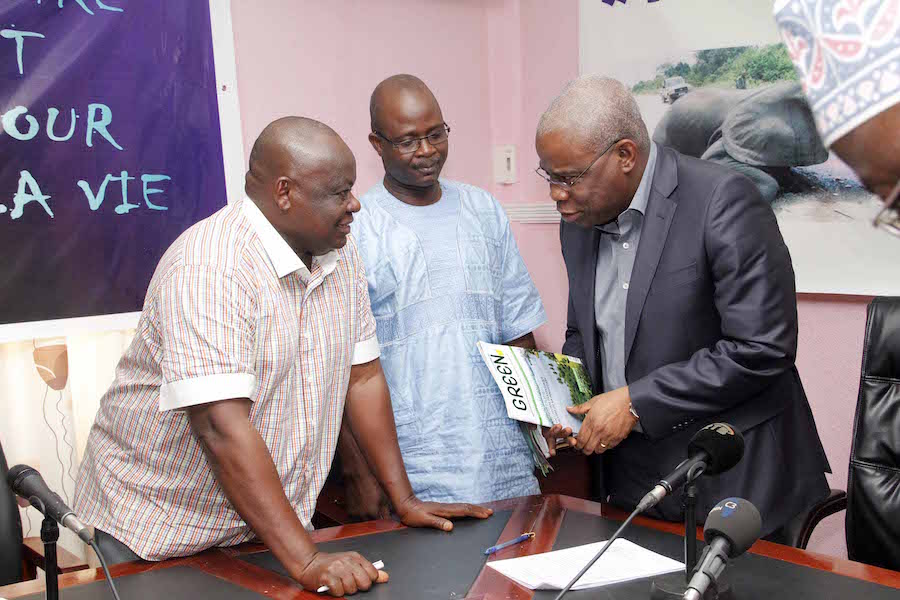
By Greg Odogwu
The sixth Africa Water Week (AWW), held in Dar es Salaam, Tanzania, from 18th to 22nd July. Remarkably, it came at a time when the whole world is tossed about by sundry heartaches ranging from apparent global economic depression, to soaring terrorism.
Secondly, it marks the end of an era and the beginning of a new one. Not only remarkable is the fact that this is the first AWW under the Sustainable Development Goals (SDGs), but 2016 is also the final year of the implementation of the Africa Water Facility Operational Strategy 2012-2016.
The African Water Facility (AWF), an initiative led by the African Ministers’ Council on Water (AMCOW) to mobilize resources to finance water resources development activities in Africa, is the platform that provides grants and expert technical assistance to implement innovative water projects and raise investment for water projects throughout Africa.
It provides grants for project preparation, water governance and water knowledge, supporting projects designed to increase water, energy and food security, enhance regional cooperation and promote socio-economic growth in Africa. It is hosted and managed by the African Development Bank (AfDB).
To its credit, over its first six years of operation, the AWF developed a portfolio of grants covering 84 projects in 51 countries including Africa’s most vulnerable states. Financial experts had reported that on average, each €1 contributed by the AWF has attracted €35 in additional follow-up investments.
“As part of its climate change strategy, the AWF prioritizes projects in water harvesting, conservation, storage, recycling and re-use, and the use of renewable energy to power water stations and infrastructures.” – Engr. Suleiman Adamu, Chairman, African Water Facility, at Dar es Salaam
The AWF helps African countries meet the goals and targets for the water and sanitation sector set by Millennium Development Goals, MDGs (now replaced by SDGs) and the African Water Vision 2025.
Established in 2004, the AWF received its funding in 2005 and became operational in 2006, when it funded its first project. The Governing Council decides the general policy and direction of the AWF. It is made up of 13 members appointed by AMCOW, donors to the fund, the AfDB, the African Union and UN-Water/Africa. The Chairperson is appointed by the Governing Council and serves a one-year term.
The current Chairperson of the AWF Governing Council is Nigeria’s Minister of Water Resources, Engr. Suleiman H. Adamu.
During the AWW 6 proceedings, there was a general consensus among experts, politicians and AMCOW leadership that the implementation of the SDGs requires a new approach to doing things. Africa, with its recorded low performance in the defunct Millennium Development Goals 2015, cannot afford to stay on the path of lack-luster developmental performance.
This is why Nigeria’s leadership of the AWF would be exciting. Adamu has a fresh idea of private-sector engagement in the water and sanitation sector, which of course would come in handy in his new job. Judging from his ideas, and ongoing policies in Nigeria’s water resources ministry, AWF is about to widen its horizon.
Notably, he revealed as much in the speech he delivered at Dar es Salaam, during the AWF meeting.
While throwing light on the AWF 2017-2025 Long-Term Strategy, Adamu said, “The new strategic framework will strengthen AWF’s role as Project Preparation Facility and define its main areas of intervention and a new Funding Strategy for its operations.
“A particular focus will be put on the solicitation of non-traditional donors such as philanthropic foundations and the use of innovative financing mechanisms.
“The facility will also establish new partnerships and develop synergies with organizations pursuing the same goals in order to optimize resources and share knowledge raised from projects.”
The importance of these prospective strategies can never be overemphasized. As it stands today, many countries in Africa, because of lack of prioritization of WASH, allocate relatively meager resources to the water sector.
This situation has truncated most projects in the region, given that finance plays a major role towards meeting water related targets and goals.
This reality was reechoed at the AWW with AMCOW’s Executive Secretary, Mr Bai-Mass Taal, calling African leaders to remember that water, which is a multi-sector issue cutting across agriculture, health, education, and socio-economic issues, should be accorded a top position in State budgets.
There was, therefore, a clarion call on member-countries to increase their budget for water in order to meet the SDGs on water and sanitation.
At the end of the day, it became obvious that the region needed to start thinking outside the box for strategies that would help countries scale up access to water for all.
In Nigeria’s water sector, while maintaining that Nigeria was not able to achieve the MDGs target due to sole reliance on budgetary allocation from the three tiers of government, Engr. Adamu had already started deploying innovative strategies.
At the sidelines of the AWW, he told journalists that Nigeria would soon launch the National Programme on Partnerships for Extending Water, Sanitation and Hygiene, aimed at meeting the SDGs goal 6 – universal access to water.
The initiative is unique because it actively involves the participation of the private sector and target communities in provision of the needed water, sanitation and hygiene infrastructure.
He said Nigeria needed to take the lead on these issues, rather than relying solely on development partners.
To be candid, one cannot but agree with the view that because of sole dependence on funds and resources coming from development partners, most developing countries have watched helpless while their water sector dwindles into oblivion.
This attitude has to change, especially in a world where there are evolving emergencies calling for attention.
When Adamu addressed the AWW 6, he disclosed that Nigerian Government has begun the disbursement of 1 million dollars, its own contribution to the Facility. This is a commendable leadership attitude, considering that many other African countries are yet to pay up their pledges.
The Facility has committed 1.6 billion euros to implement water and sanitation projects in Africa in the current project cycle. He stated that in the proposed projects, no fewer than 3.2 million people were expected to benefit from access to improved sanitation and over 2.8 million of them would have access to improved drinking water sources.
Concerning climate change, Adamu explained, “As part of its climate change strategy, the AWF prioritizes projects in water harvesting, conservation, storage, recycling and re-use, and the use of renewable energy to power water stations and infrastructures.
“AWF is a financial instrument designed to support actions and initiatives that will result in enhanced equitable and sustainable development and management of African water resources for poverty alleviation, socio-economic development, regional cooperation, the protection of the environment, and resilience to water-related disasters and climate change.”











